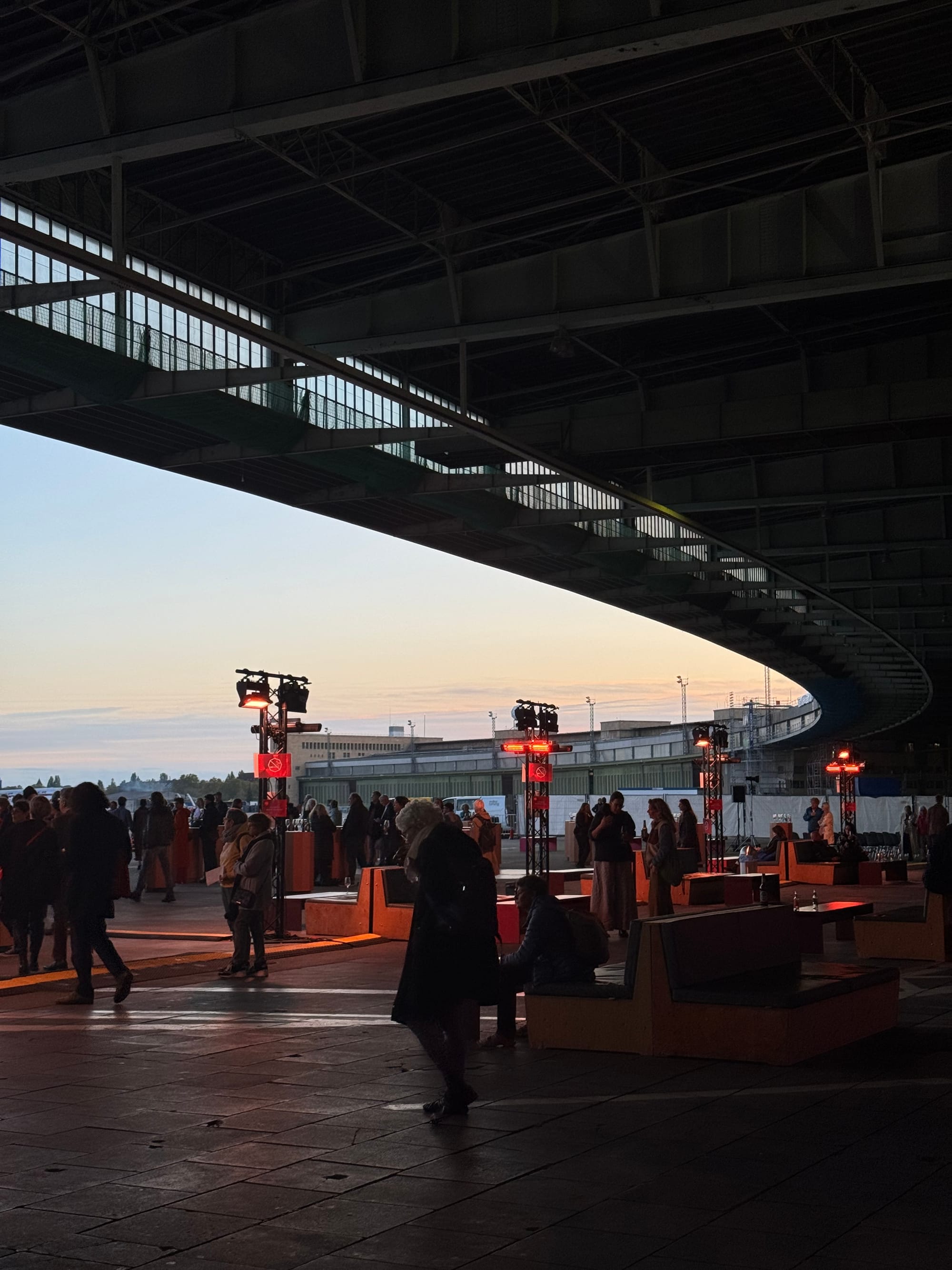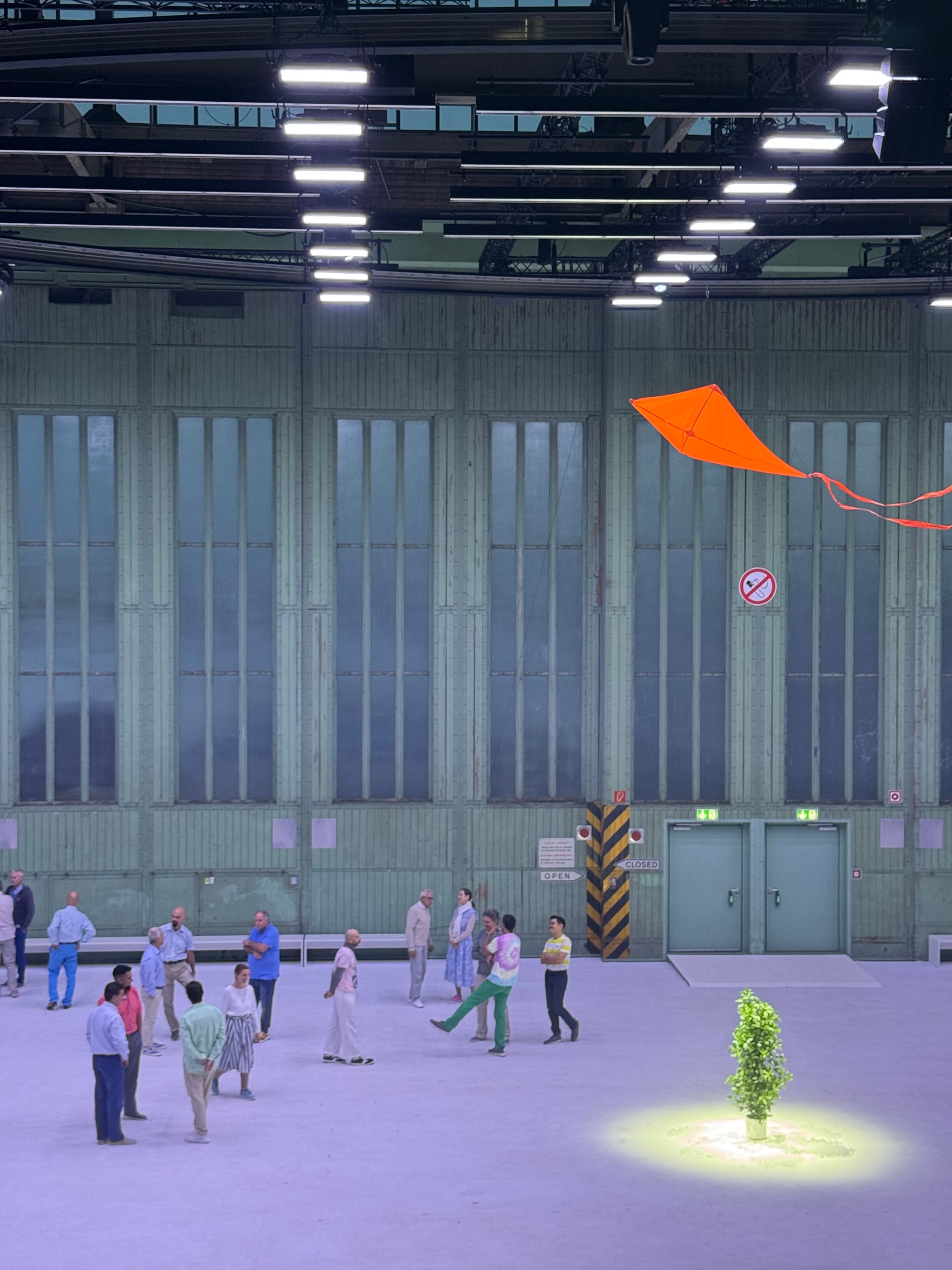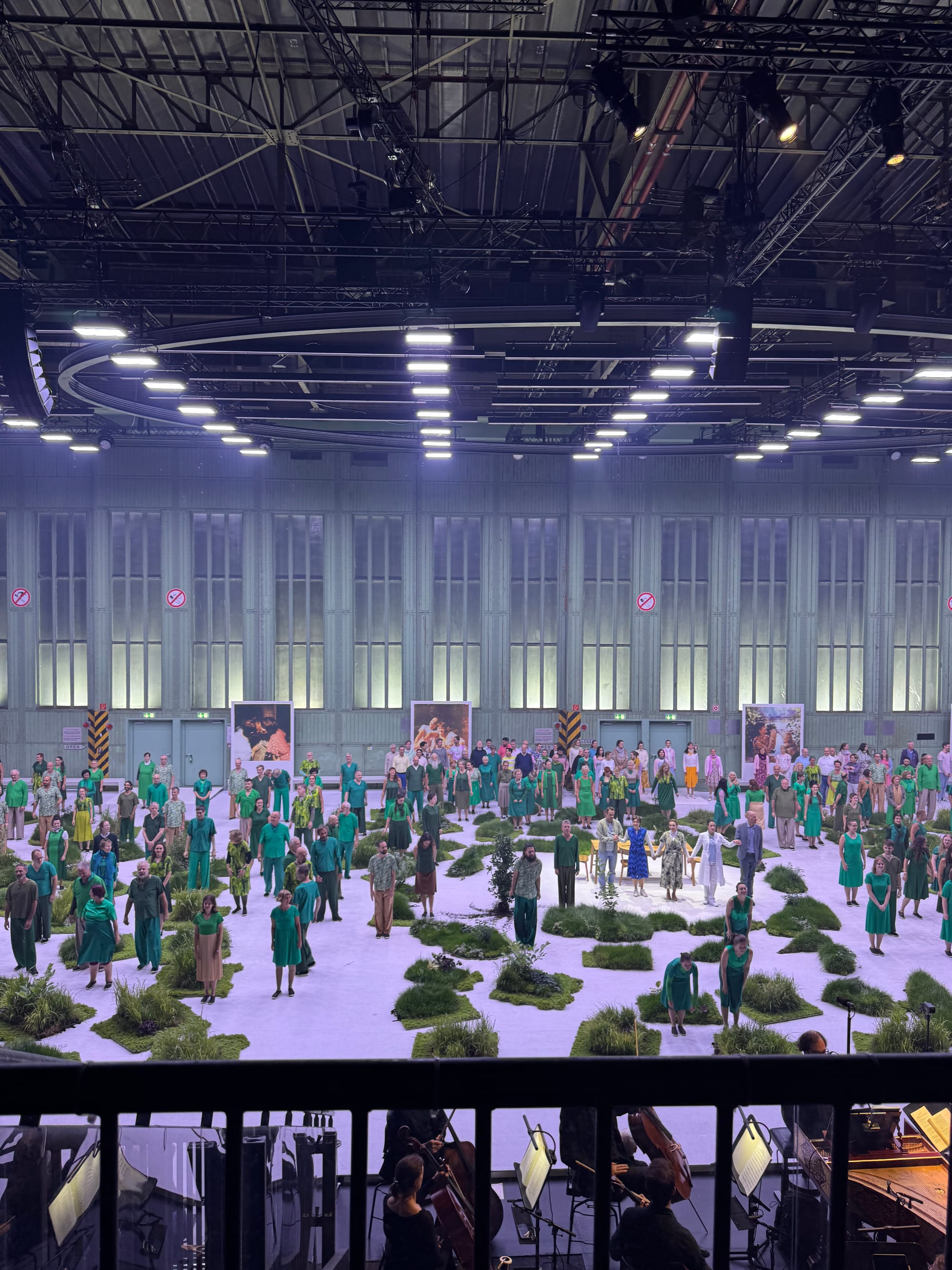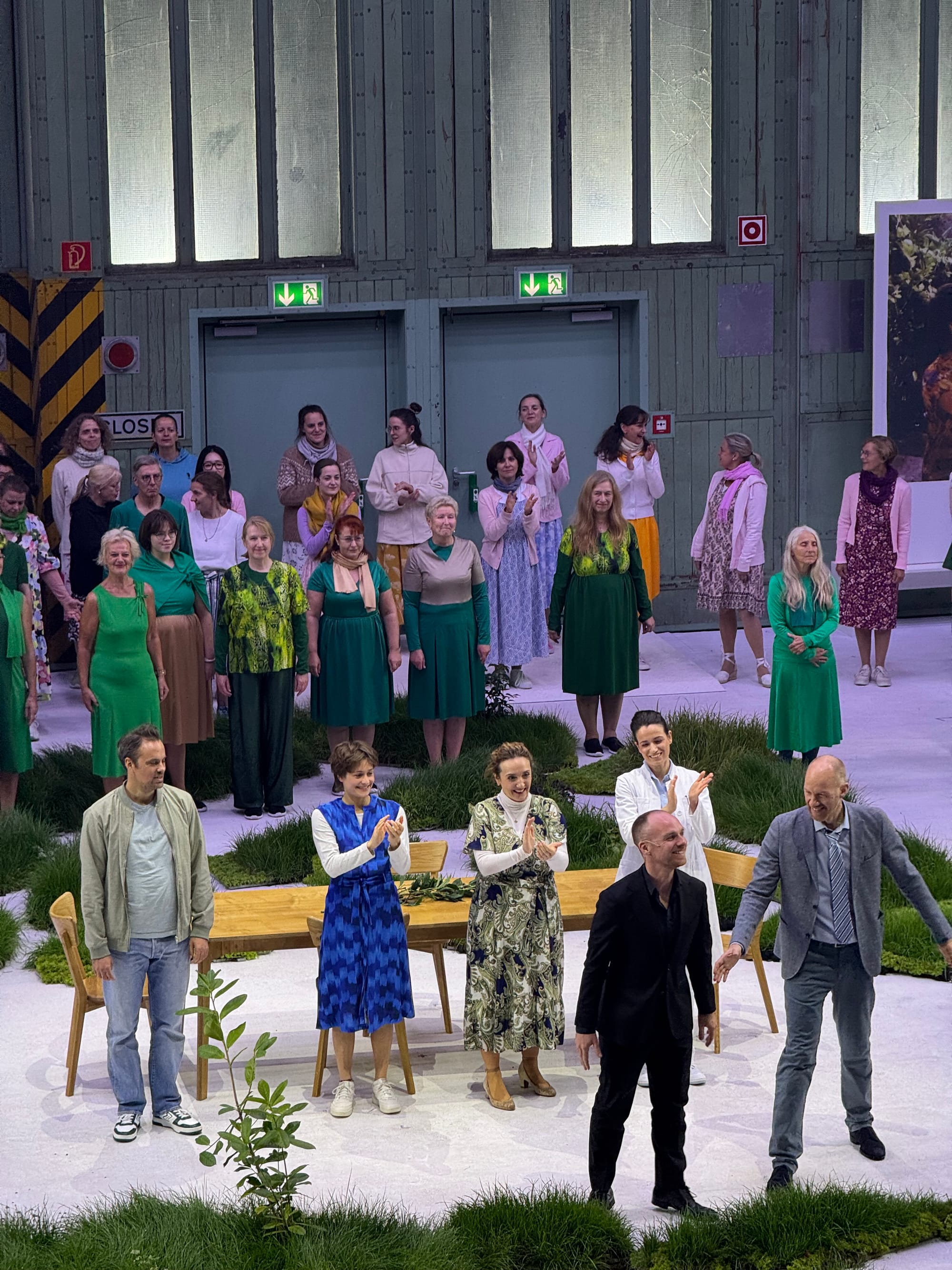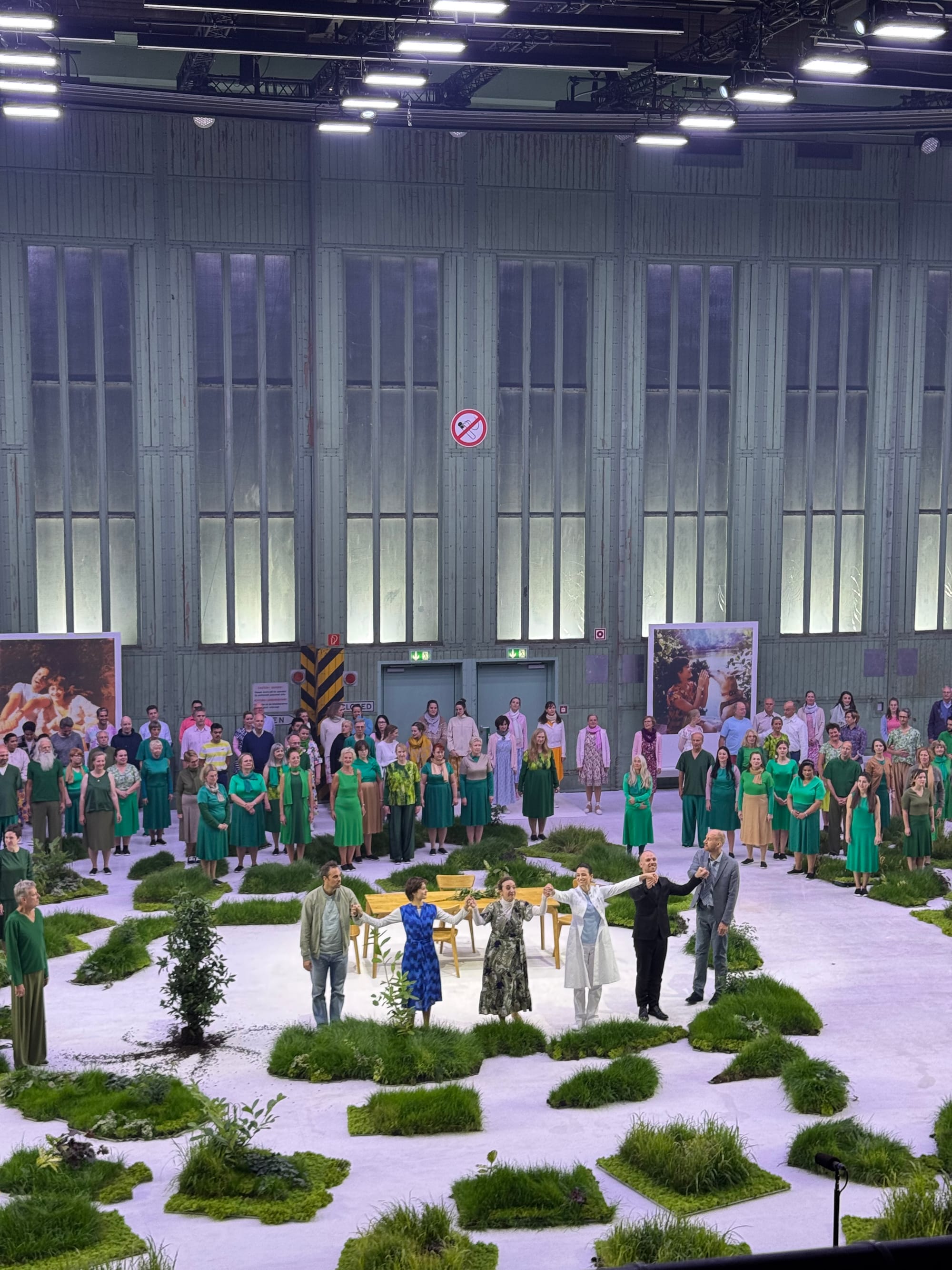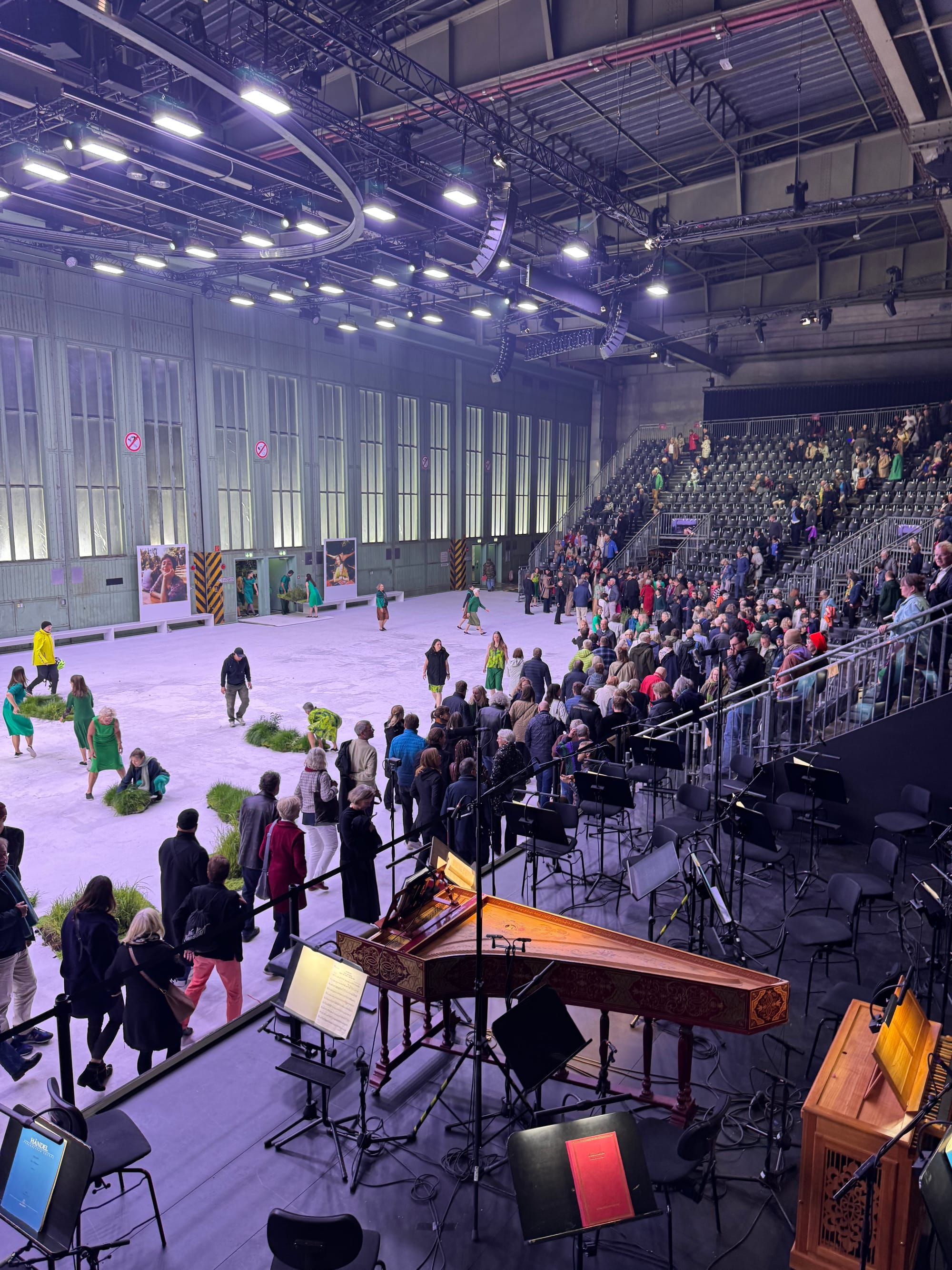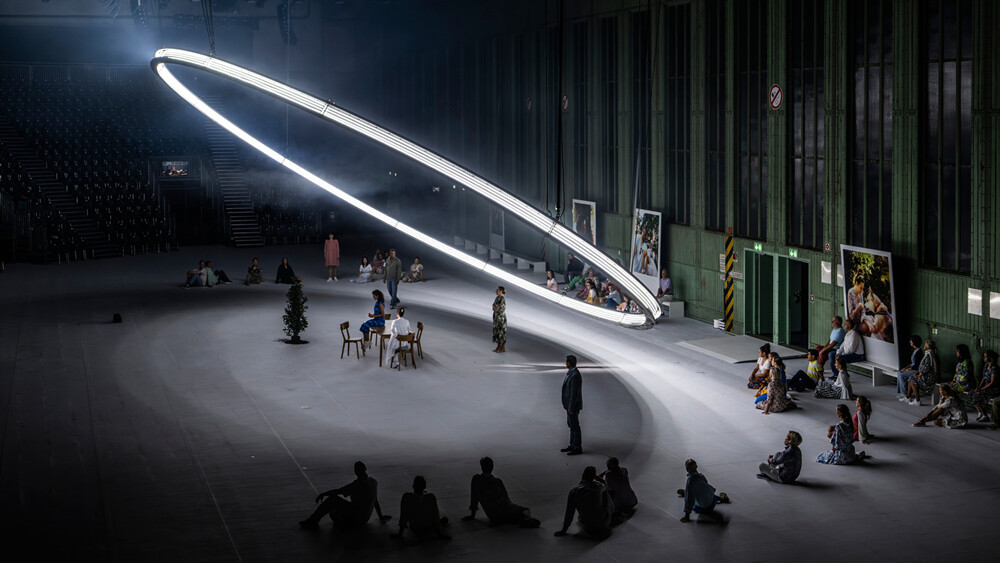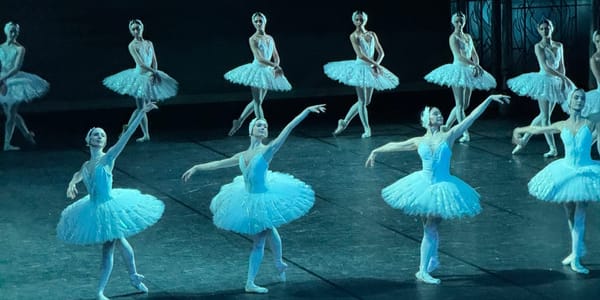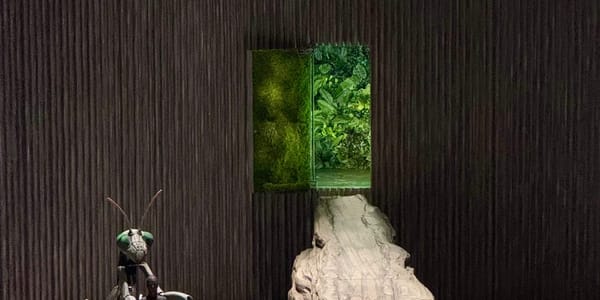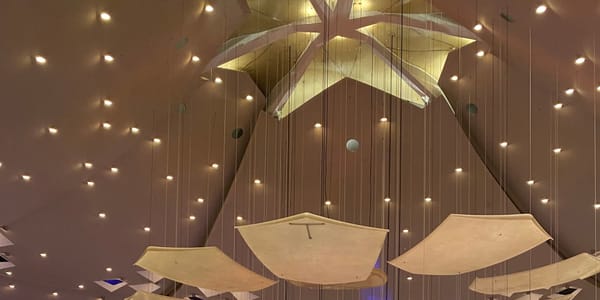Messias at Komische Oper Berlin
In Messias, Händel tells the story of the birth, life, death, and resurrection of Jesus Christ by stringing along bible passages to create a coherent storyline. In this production, the religious component takes a back seat, with a very worldly plot taking center stage.
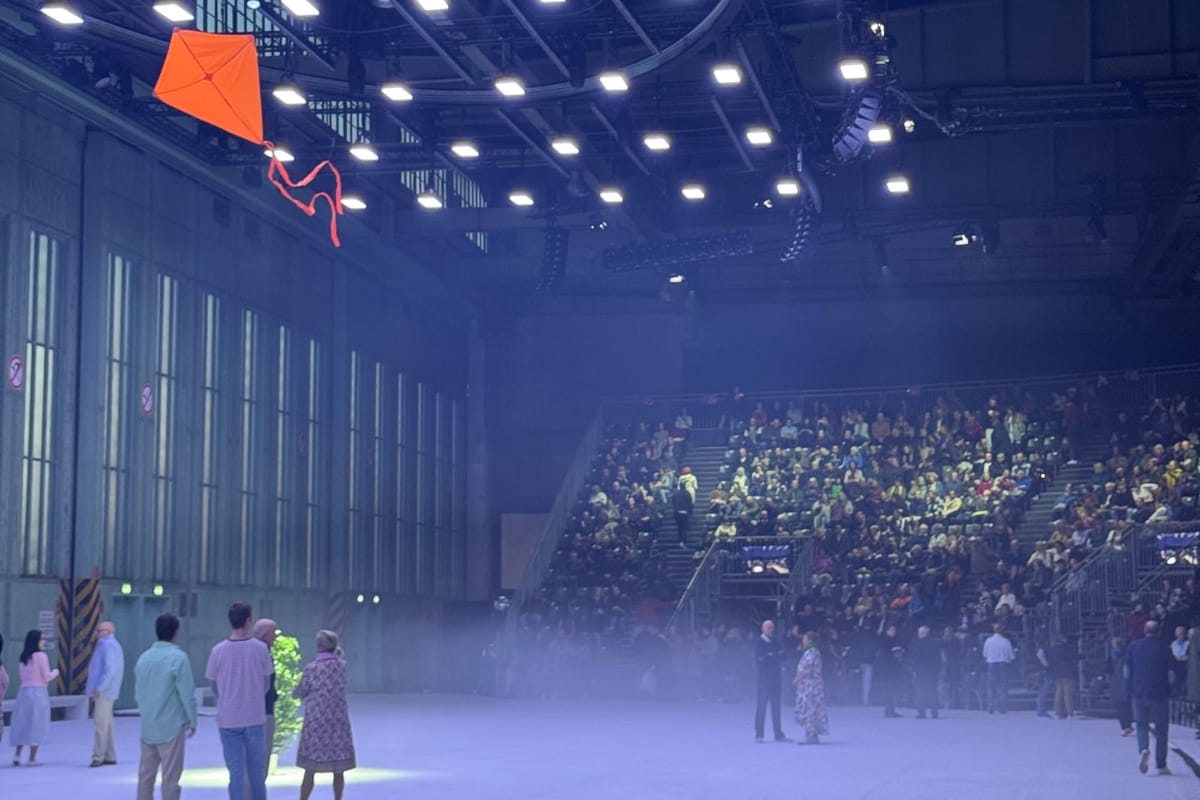
⭐️⭐️⭐️⭐️
🎭 Messias / Messiah
🎶 Georg Friedrich Händel
🏛️ Komische Oper Berlin
🗓️ 29.09.2024
Navigating the opera schedule in Berlin for the new season has meant sitting down in front of my calendar, juggling „competing“ programs/Spielpläne, and shifting plans until I can fit in everything I want to see (and staying aligned with others who are doing the same). Because I missed the Komische Oper Berlin‘s production in Hangar 4 of Tempelhof Airport last year I was hell-bent on making sure I would not miss this performance (which is why I in turn missed the premiere of La Fiamma at Deutsche Oper Berlin—you win some, you lose some).
I‘m of course referring to the insanely massive production of Messias for the Komische Oper‘s season opening at Tempelhof Airport. This elaborate season opener is becoming a tradition for the Komische Oper while its home base in Mitte is under construction for a years-long renovation. For Messias, four soloists, a silent actress, and a choir of over 300–consisting of the KOB choir and amateurs from all over Berlin—come together on a 1.200 m2 stage, enveloped by massive u-shaped stadium-like bleachers.
In Messias, Händel tells the story of the birth, life, death, and resurrection of Jesus Christ by stringing along bible passages to create a coherent storyline. In this production, the religious component takes a back seat, with a very worldly plot taking center stage: A young woman receives news of her terminal illness, with six months to live. We see her grapple with the news, make peace with it, how her relationships change, and ultimately how she opts for assisted suic!de to end her life on her own terms.
The result is an ethereal performance, with Händel’s beautiful oratory music setting the backdrop to a story that is raw, emotional, and relatable to many and epitomizes an archetypical human experience—an untimely death. In fact, the story mirrors the life of Brittany Maynard, who in 2014 chose assisted suic!de at the age of 29.
That being said, there is one major ick I had with this production. In a pivotal scene, hundreds of people protest against the right to assisted suic!ide with large “pro-life” posters, banners, picked signs (picture courtesy of my sneaky neighbor). While this is intended to showcase societal opposition to such an expression of self-determination, I couldn’t help but be reminded of anti-abortion protests (a different kind of “pro-life”) in the US, which ring heavy in a post Roe v. Wade context (or in Germany, where abortion is still legally a criminal offense).
Ultimately, the production remains a very emotional experience and has been a highlight of the season thus far. Seriously—when during the final scene it starts raining inside the hangar, onto a stage-filling garden made of real plants set up by the whole 300-person choir—I had chills and shed a tear. Can’t wait for next season’s KOB production at Tempelhof!
